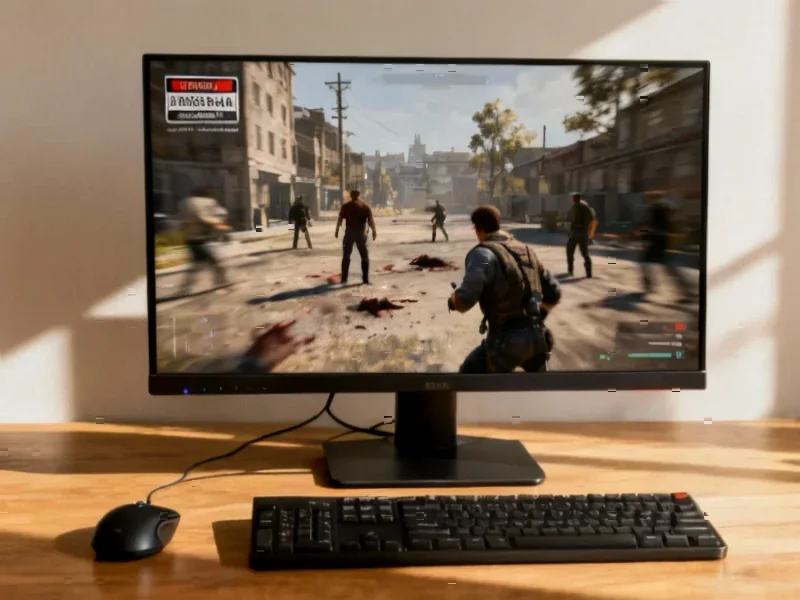According to Eurogamer.net, Rockstar co-founder Dan Houser revealed in a recent interview that Grand Theft Auto will never return to London or any non-American setting due to the franchise’s deep ties to Americana. The series briefly visited 1969 London in a 1997 expansion pack, but Houser explained that guns and larger-than-life American characters are too integral to the GTA identity. In his conversation with Lex Fridman, Houser described GTA as needing “psychotic Dickens” characters and abundant firearms, elements he believes wouldn’t work in London’s cultural context. The interview, available on Fridman’s YouTube channel, also touched on development pressures across multiple Rockstar titles, including budget overruns on Red Dead Redemption 2. This definitive statement about GTA’s geographical limitations reveals deeper creative constraints facing blockbuster franchises.
The Franchise Identity Trap
What Houser describes is what I call the “franchise identity trap” – when a series becomes so successful by doing one thing perfectly that it cannot evolve beyond those parameters. We’ve seen this across entertainment: James Bond must remain a British spy, Marvel movies require superhero spectacle, and now GTA appears permanently anchored to American satire. The irony is that Rockstar’s early experimentation with London in 1997 demonstrated the franchise could work in different contexts, but two decades of commercial success have cemented expectations that now limit creative possibilities. This isn’t just about guns; it’s about audience expectations, marketing requirements, and the billion-dollar pressure to deliver what’s proven to work.
The Cultural Saturation Point
Houser’s comments suggest GTA has reached a cultural saturation point where its American identity has become inseparable from its gameplay mechanics. The gun culture he references isn’t merely a gameplay convenience – it’s woven into the franchise’s DNA through its satire of American violence, freedom, and excess. Attempting to transplant this to London would require fundamentally reimagining the series’ core mechanics and tone. This creates an interesting paradox: the very specificity that made GTA culturally resonant now prevents its geographical expansion. Other franchises like Assassin’s Creed successfully hop between continents because their core mechanics (stealth, parkour, historical tourism) translate across cultures, but GTA’s marriage of gameplay and cultural commentary appears uniquely location-dependent.
Broader Industry Implications
This revelation speaks to a larger trend in AAA gaming where successful franchises become creatively conservative. When development budgets approach $200-300 million and marketing doubles that figure, the financial stakes make radical reinvention increasingly risky. We’re seeing similar patterns across the industry: Call of Duty’s gradual evolution, FIFA’s annual roster updates, and Nintendo’s careful handling of Mario. The departure of creative visionaries like Houser often accelerates this trend, as corporate oversight prioritizes predictable returns over creative risks. His new venture, Absurd Ventures, represents the creative freedom that becomes impossible within established billion-dollar franchises.
The Future of Franchise Evolution
Looking forward, this suggests we may see fewer geographically ambitious sequels in established franchises and more spin-offs or new IP for exploring different settings. Rockstar’s own approach with Red Dead Redemption demonstrates they understand historical American settings can provide fresh contexts while maintaining cultural familiarity. The real question is whether future gaming audiences will accept such geographical limitations or demand more diverse settings as global gaming markets expand. With emerging markets in Asia, Africa, and South America representing the industry’s growth frontiers, franchises that remain culturally specific may eventually face audience fatigue or miss massive opportunities for global resonance.
The Creative Legacy Question
Houser’s departure and these revelations raise important questions about creative legacy in gaming. The visionary who helped build GTA into a cultural phenomenon now acknowledges its creative boundaries, while his successor faces the challenge of evolving the franchise without its original storyteller. This transition mirrors Hollywood’s experience with franchises that outlive their creators – the Star Wars universe continues without George Lucas, James Bond persists beyond Ian Fleming. The test for GTA 6 and beyond will be whether new leadership can find innovation within the American setting Houser deemed essential, or whether the franchise will gradually become creatively stagnant despite technical advancements.




